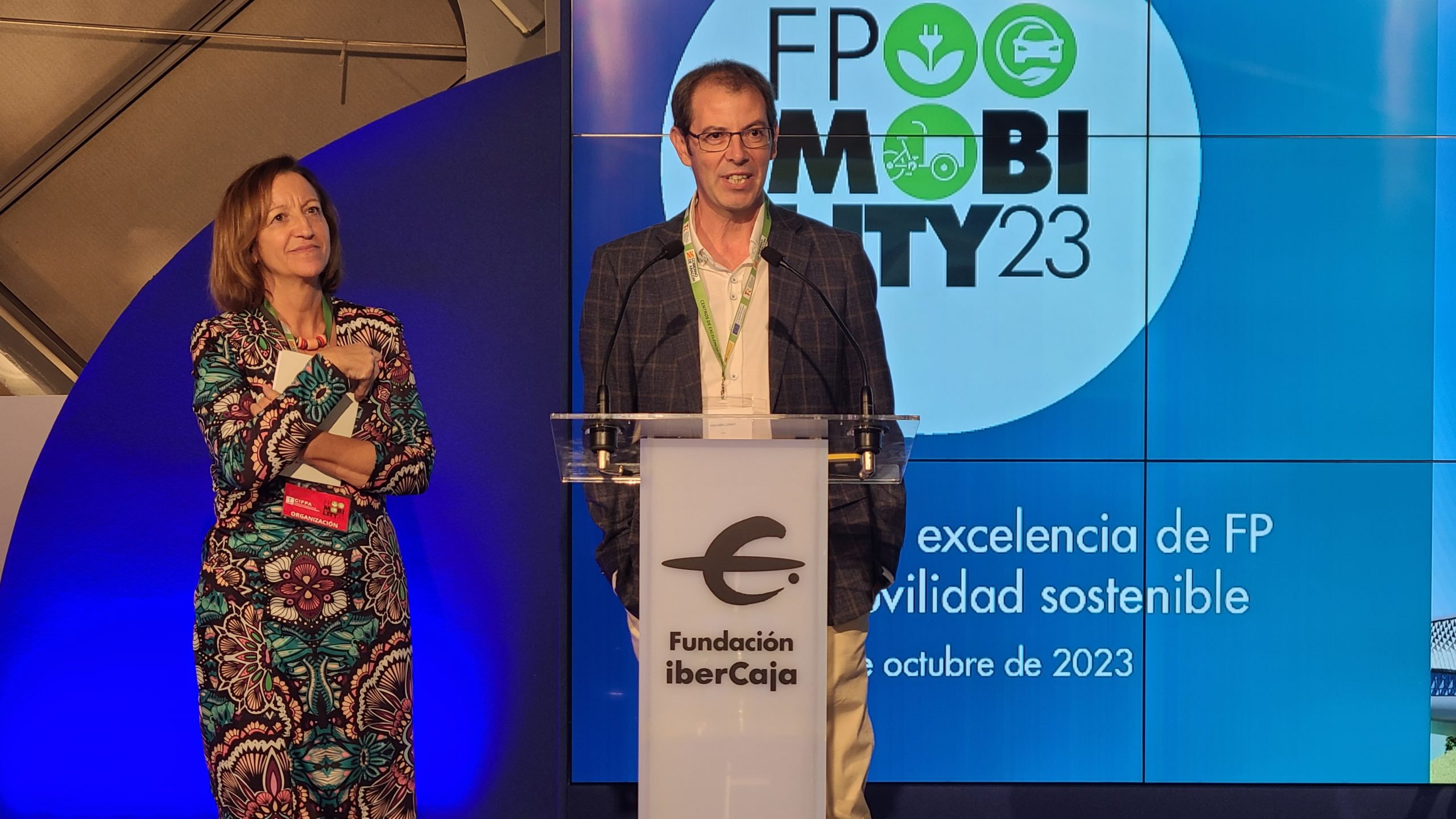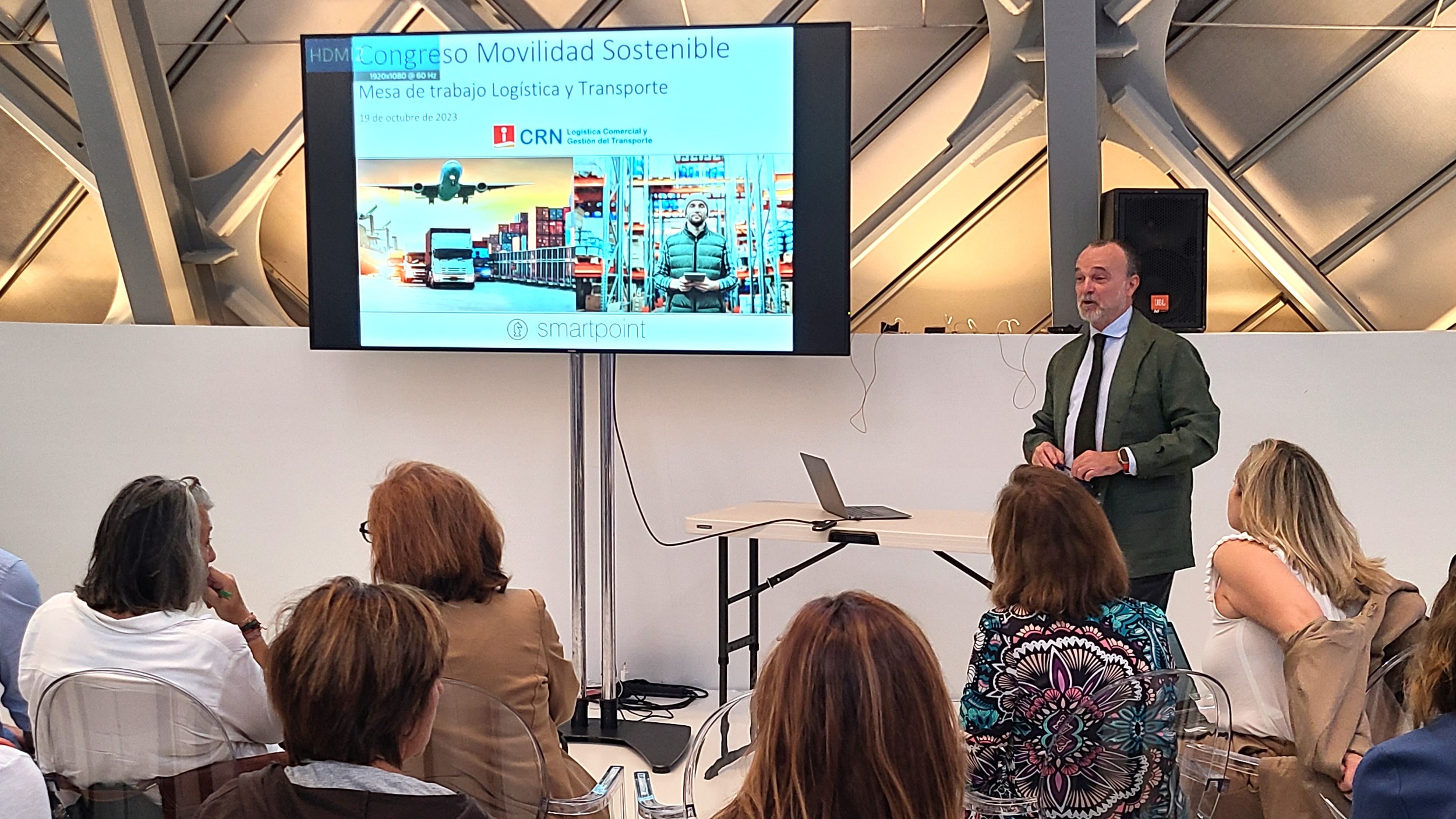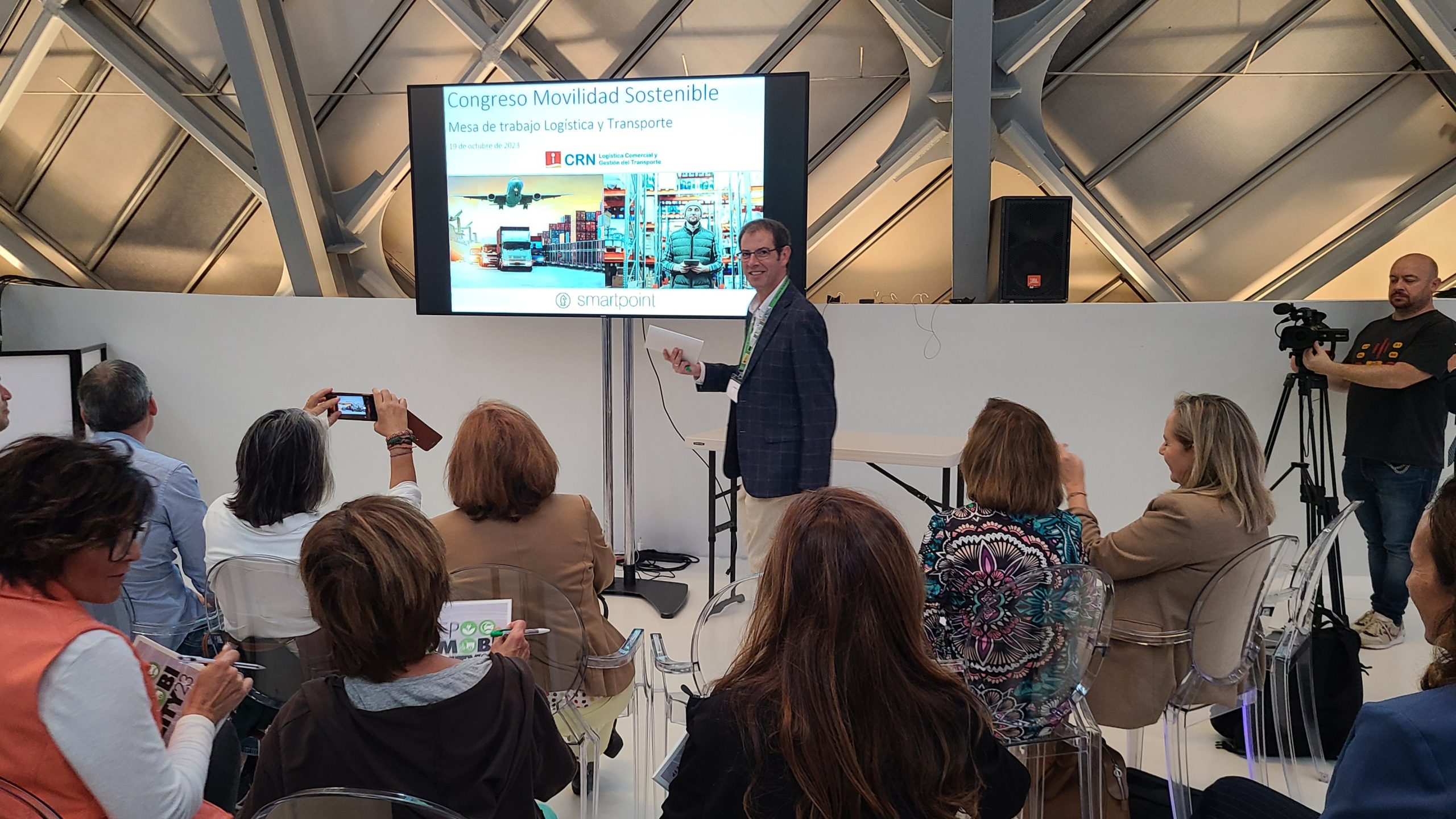
23 Oct FPMobility23 congress strengthens ties between business and education
The need for specialized personnel, the improvement of professional guidance in educational centers, the updating of curricula and the importance of bringing companies and training centers closer together were some of the conclusions of the FP Mobility Congress, which last Thursday, October 19, welcomed a large number of people linked to the automotive, renewable energy, transport and logistics sectors to the Mobility City space.
This congress was organized by the three Aragonese centers that are part of the State Network of Vocational Training Centers of Excellence: the CPIFP Bajo Aragón, in Alcañiz; the CPIFP Pirámide, in Huesca and the Innovation Center for Vocational Training of Aragón (CIFPA), in Zaragoza.
The conclusions of this meeting were presented in the afternoon session with the development of three working tables, one for each sector, in which representatives of the company Smartpoint presented some data from the sectoral maps that are being finalized for the three centers. Representatives of companies, organizations, administration and teachers were able to discuss these data.
Some of the conclusions of the round table dedicated to the transport and logistics sector, CIFPA's responsibility as a center of excellence, were:
- Companies in the sector indicated that they currently have a large number of unfilled positions in all areas related to logistics and transportation. The shortage of specialized workers is suffered in all areas, both in management, warehousing and continuous training. They also have difficulties in finding drivers, delivery drivers and forklift drivers. One of the proposals discussed was that the administration should promote a training cycle that would make it possible, among other things, for students to obtain a truck license.
- In training, the participants indicated that in addition to the acquisition of technical skills, it is also necessary to stress the importance of training in digital resources, languages and soft skills, since they recognize that there is a problem of attitude and commitment among workers. In any case, they recognized that this problem can hardly be solved with specific training related to soft skills.
- Improve guidance work in secondary schools, with two objectives: to raise awareness of all the job opportunities available in the sector, and to make the activities carried out in the logistics and transportation sector attractive to current and future students.
- It is necessary to update the curricula of the training cycles of the professional family of Commerce and Marketing, which includes the teaching of transport and logistics. They agreed that there must be a harmony between what is taught and what the companies in the sector need in terms of personnel. In particular, they spoke of the urgent need for classrooms to work with the hardware and software already in use in the company (business management, warehouse management, route planning, etc.).
- It should be taken into account that the teachers of these training cycles, at university level, have not received specific training in logistics, so they propose to improve the relationship with the company in order to be able to carry out training stays and thus learn first-hand how they are working at company level.
At this meeting, the companies stated that they do consider it important and urgent to work closely with the centers in order to:
- Digitization of vocational training classrooms with software similar to the one they use.
- The promotion of actions related to professional guidance in Secondary Education centers.
- Promote the initiative of teacher training stays and improve relations for the development of visits, talks and participation in activities and innovation projects that can be promoted from the educational centers.
Regarding the future, the meeting discussed digitalization as a process that is becoming increasingly less difficult for companies and workers. Also sustainability with new fuels and technological innovation such as autonomous vehicles. In any case, and as a general conclusion, it was pointed out that the future must involve close collaboration between the educational administration, centers and companies.
More information about the Congress at:





